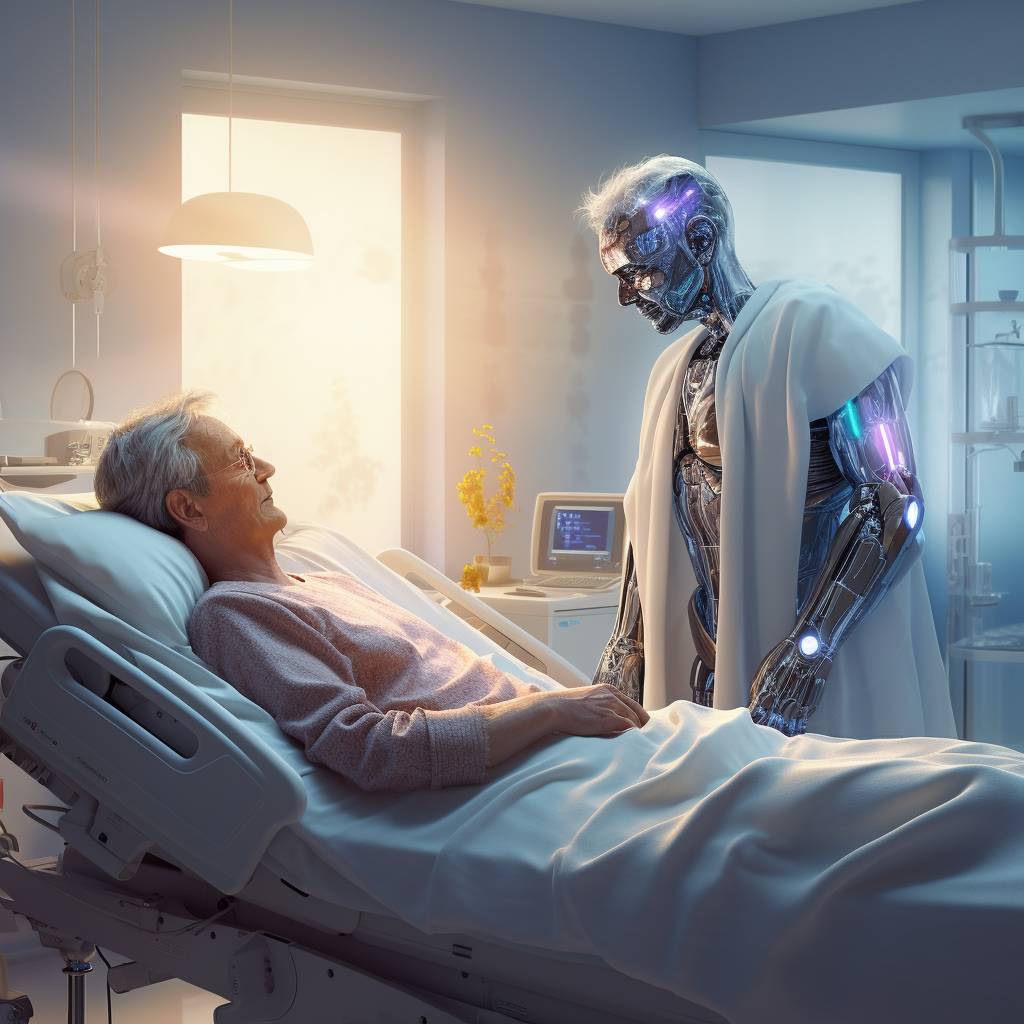Japanese Scholars Investigate the Feasibility of AI and Robotics in Nursing
The concept of AI-enabled robots performing nursing duties is no longer a futuristic idea. Baptist Health in Jacksonville, Florida, for instance, is already deploying Moxi, a robot, to aid with tasks that would otherwise distract from patient care. However, a recent study questions whether these machines can deliver the same level of quality care that human nurses provide.
A team of researchers from three prominent Japanese universities delved into the capacity of AI and robotics to execute nursing tasks on par with humans. The study, which focused on applied ethics, explored whether technologies in robotics, human engineering, and human intelligence could and should replace humans in nursing duties.
Tomohide Ibuki, an associate professor at Tokyo University of Science, explained the study’s objective. He emphasized that the human touch nurses provide forms a significant part of their connection with patients. This is one reason why nursing has been the most trusted profession in America for 21 years.
The researchers investigated if the latest advancements in robotics and AI could replicate these human aspects. They focused on ethical concepts associated with human nurses, such as advocacy, accountability, cooperation, and caring.
In nursing, advocacy involves speaking for patients to ensure they receive the best medical care possible, are protected from medical mishaps, are informed about treatment options, have their preferences acknowledged, and act as intermediaries between the hospital and the patient. While AI can notify patients about medical errors and present treatment alternatives, the researchers questioned its ability to genuinely comprehend and empathize with patients’ values and effectively act as mediators.
The issue of holding robots accountable for their actions was another point of contention. However, the researchers suggested that developing explainable AI could enhance accountability by offering insights into the decision-making process of AI systems.
In today’s healthcare environment, teamwork is crucial. Nurses must collaborate effectively with their colleagues and other clinicians to ensure patients receive optimal care. The researchers noted that humans rely on visual cues to build trust and establish relationships. As such, unfamiliarity with robots could lead to less than ideal interactions. They stressed the need for further investigations to determine the appropriate appearance of robots for effective cooperation with human medical staff.
The researchers also pointed out that the success of AI-powered nurse robots depends on patient acceptance. While they do not foresee robots fully replacing human nurses in the near future, they did not rule out the possibility.
However, they stressed that if this were to happen, it would require careful consideration of the ethical implications and impact on nursing practice. “While our analysis does not rule out the possibility of implementing nursing’s ethical concepts in robots and AI in the future, it does highlight several ethical questions,” Ibuki said. “Further research could not only help address these questions but could also lead to new discoveries in ethics.”
This study underscores the intersection of electronics and healthcare, particularly in the realm of artificial intelligence and robotics. As technology continues to advance at a rapid pace, programming languages and coding will play an increasingly vital role in healthcare delivery. While AI and robotics promise increased efficiency and accuracy, their integration into sensitive areas like nursing must be approached with caution, ensuring that they augment rather than replace the human touch that is so integral to patient care.
